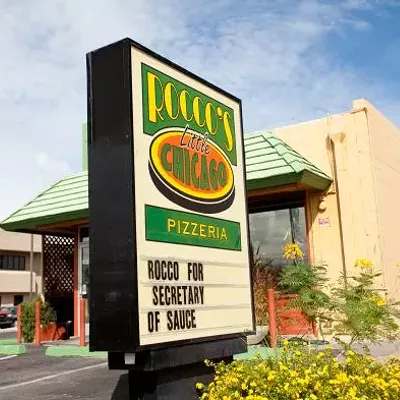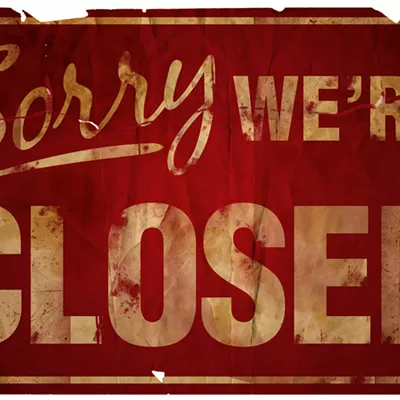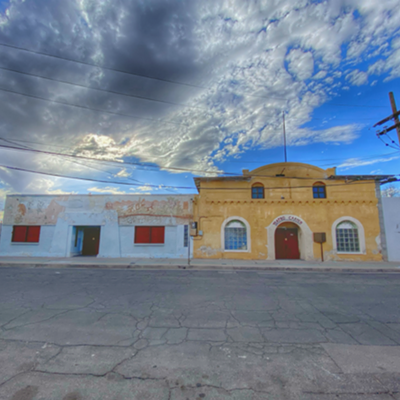Depending upon your perspective, it's either a one-way ticket to the Great Beyond or the last train to Wormville. For the dearly departing, of course, there's little choice in the matter. But for those left behind, the possibilities are, well, infinite.
As it turns out, our seemingly tidy conclusions are actually pretty complex, full of pitfalls, pitches and a jungle of government paperwork. Partly, this is a product of volume. Numbers-wise, the dead are on the rise in the United States: In 2003 (the most recent death count available), the National Center for Health Statistics reported that some 2.5 million of us met our maker. That's expected to easily top 3 million by 2020, as Baby Boomers hit the final checkout line.
Not to be left behind, funeral marketers are barely masking their ghoulish glee. At funeral-packages.com, you'll find a cornucopia of send-offs, from ho-hum traditional services to a direct deep-sixer without all the fancy stuff. In a nicely surreal touch, funeral-packages tops its Web page with a pair of happy seniors.
How's about sorrow? The Dignity Memorial network does that. At member businesses, including Tucson's South Lawn Cemetery, you'll find "grief resources," such as DM's Picking up the Pieces® package of videos and brochures.
Shopping for a stylish casket? Stop by your friendly Costco, where high rollers will find the snazzy Argos Cherry Casket for $2,700, and devout plebeians can go cheap with the Lady of Guadalupe (our Lady adorns the liner) for a mere $924.99, plus tax.
Still, the funeral world is hardly all flowers and fluff. Take the current king of memorial hill, Houston-based Service Corp. International. With six facilities in Tucson, SCI is currently being sued by consumers and at least one casket company for price fixing.
At the same time, an expanding industry means growing challenges. One is manpower; Arizona now has some 800 licensed funeral directors, up from only 500 a decade earlier. Nonetheless, funeral homes are fishing for new recruits with talk of better pay--directors' annual salaries now start at around $30,000--and fewer hours.
Not surprisingly, this changing industry can put big pressure on smaller guys, such as Tucson-based Adair Funeral Homes. With five operations in Arizona, the business end of undertaking is increasingly tricky, says owner Ron Adair. "I wouldn't necessarily say it's any more competitive now than it ever has been. But there's a lot more paperwork that has to be done. Seems like you fill out a form to fill out a form."
That also means more opportunities for screwups. These are both colorful and plenty, from the failure of funeral homes to properly gussy up bodies, and identity mix-ups at crematoriums, to the disappearance of remains in the mail.
This gets even more complicated in the burgeoning specialty market. For example, some funeral homes will jump-start your heavenly journey by shooting your remains into space. Others will provide gourmet caterers to nourish your final guests.
Still others, such as Adair, specialize in shipping bodies out of the country. It can be a lucrative niche market--but one full of bedeviling details (see "Body Work," Jan. 19). Dispatching bodies to Mexico requires a legion of permits, some filed with Arizona officials, and others translated into Spanish for the Mexican bureaucracy. It's a Byzantine process, and the source of a puzzling complaint against Adair.
On Oct. 28, Cochise County filed a grievance against the Adair Douglas Funeral Chapel. Beyond that, however, specifics get murky. There's even contention over which incident the complaint actually covers. Adair and state officials say it concerns a body shipped into Mexico. And county folks say it arose from a body interred right here at home.
"The Adair funeral home was turned over to the (Arizona Board of Funeral Directors and Embalmers) for burying a body at the Calvary Cemetery in Douglas without a permit," says Karla Jensen, a spokeswoman for the Cochise County Health Department. The body "was not sent back over the line to Mexico. As far as I know, it's still in Douglas."
Either way, "that's apparently not the first time this has happened," Jensen says. "That's why it was turned over to the board."
But Rudy Thomas, executive director of the Arizona Board, says the complaint regards a body purportedly shipped into Mexico without proper permits. Initially, Cochise County "gave us a list of seven or eight violations," Thomas says, "but they're probably down to one now." Those violations occurred between October 2004 and October 2005.
In this case, Cochise County "felt that Adair didn't file a death certificate in time," Thomas says. "Adair got a permit number to do what they have to do, but there were some corrections on the permit, and they submitted it two days after the body was (shipped) to Mexico."
Ron Adair blames the vagaries of Mexican shipping. Just finding cargo space for a body can create headaches, he says. "If they have too much freight or luggage, human remains end up getting bumped off the aircraft. That's because it takes up space that's about 2 1/2 feet wide and 7 feet long. (Airlines) are not allowed to stack anything on top of human remains, so it eats up a lot of luggage space."
Beyond that, he says, Aeroméxico actually stops shipping bodies during heavy holiday travel months from November to January. At other times, it "only flies one airliner out of Phoenix each day that can carry human remains. "
All of which makes for ticklish timing. But in this case, he says, "a body didn't get transferred without its paperwork, because it would not have gotten across the border."
So is this much ado over nothing? Rudy Thomas believes so. "After February, if (Adair) gets anything, it's going to be a letter of concern," he says. "That's my take."
Call it just another complication in the annals of modern memorials. Next time, they might just try shooting remains over the border.









